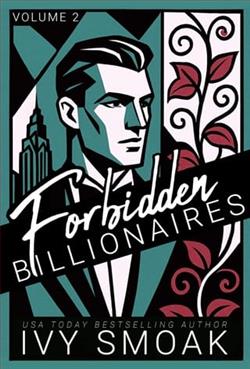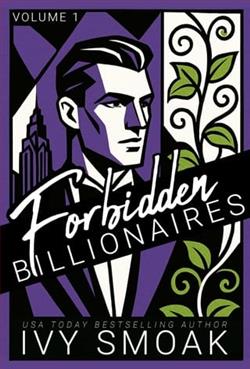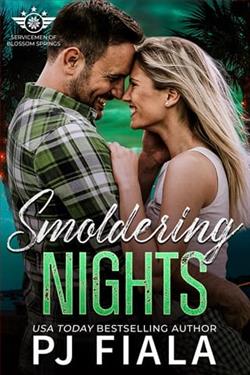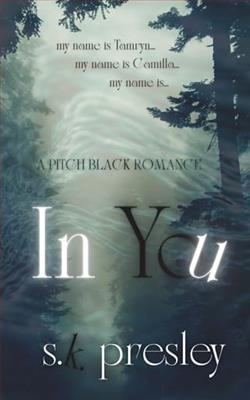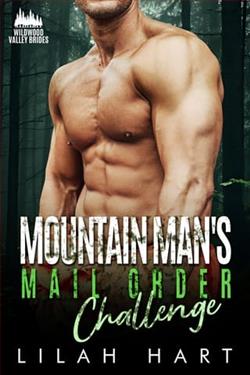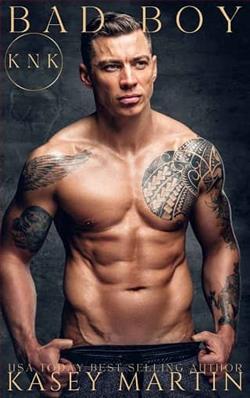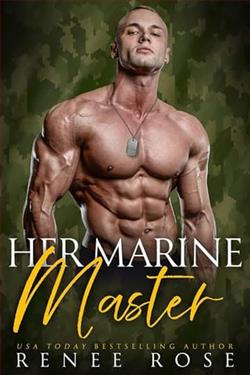Page 60 of So Far Gone
The last half year had been so trying, for so many reasons—the move to Spokane, Celia’s illness and death, Bethany’s inability to find a job in Spokane beyond substitute teaching, Shane’s attempts to immerse the whole family into the Church of the Blessed Fire (only Leah seeming even mildly interested, mainly because of her crush on the pastor’s son, David Jr.). No, this year had completely undone her. Had she lost her mind, coming up here? Was this some final break from reality?
Bethany closed her eyes and tried to let the music calm her again. She gave in to the vanilla smell of the ponderosa pines and the sounds of the crowd and The Buffs’ angelic singer intoning those long vowels—she swayed a little, time passing along with their smooth set list, until she heard the singer say, “Thank you. We’re The Buffs. Or The Boofs. You do you.” He nodded toward her side of the stage. “This one’s by our friend, Bethany Kinnick.” Her maiden name—oh, the freedom of that. Applause, cheers, and a familiar rhythm rose up as they began playinghersong, the sneakily creepy “Don’t Be Misled.” She’d written it about the power of obsessive love after following Doug on a much earlier concert tour, in 2008, with his most successful band to that point—successfulmeaning they could sometimes afford to sleep in hotels while on tour.
Don’t be misled, she’d written in the chorus,I am not your friend / I’m here to own you / to clone you / put your heart / in my pocket / pull your arms / out of socket / so I can keep them / around me forever.
The Buffs’ singer—working in his high, feathery register—made her lyrics sound even more haunted, like the young man was predicting hisown demise. She glanced over at the dancers, who had mostly stopped spinning and reaching for ropes and were just watching the band, as if at the theater. The pride she felt!That’s my song!And Doug’s smart arrangement—a precisely picked guitar, harmonized chorus, a cymbal wash that sounded like gently breaking glass—made her proud of them both.
The music faded into applause and cheers, and the singer gave a soft “Thanks y’all.” The singer pointed with an open hand to the small side-stage pen where the girlfriends sat on blankets and in folding chairs; Bethany smiled shyly, then waved to the back of the stage where Doug put his hand on his heart and extended it to the side pen, toward her.
Someone in the crowd apparently appreciated the song, too, because a voice called out “Bethany!” She was confused at first, and glanced to her right, scanning the stoned and painted faces on the other side of the fence. Again: “Bethany!” A familiar voice, but out of context.
An altercation at the right edge of the dancing throng caught her eye, someone pushing through the crowd—and what she saw next refused to constitute itself in her mind: her father was trying to climb the six-foot chain-link fence separating the girlfriend pen from the dancers and Hula-Hoopers. And two security guards were rushing to stop him. An older Native American man in a trucker’s cap and an open-shirted bearded man in a homburg hat were pulling at the security guards as Rhys, perched on the fence, yelled again, “Bethany!”
He freed himself from the guards’ grip and flopped over the chain-link, falling six feet onto his back. “Bethany! That song!” He got up. “It was great!” He ran to the shorter steel crowd-control railing, his leg catching as he crawled over it.
She rose out of her folding chair and began moving toward him, the quavering voice that came out of her not her adult voice, but a scared ten-year-old’s: “Dad?” He looked terrible. He was wearing a Glass Animals T-shirt. His cheek was swollen, and he had a black eye that was beginning to turn yellow and green. “What are you doing here?”
They were only fifteen feet apart now. Her dad opened his mouth to answer, but he was knocked to the ground again, a burly security guard hitting him with his shoulder and falling on him, slamming his already battered face into the trampled grass.
“Okay, Gramps,” the man said. “That’s enough.”
***
On the way out, Kinnick paused to look back over his shoulder. With the sun setting behind them, The Buffs were playing an encore, and they were surprisingly...not terrible. Like an edgier, synthesized Seals and Crofts (a reference that he suspected the band would either not know or certainly not love). One of the security guards yanked on his arm again and Rhys continued being escorted out by these angry toughs. Bethany, Brian, and Jeff walked behind him, as they were all herded through the side-stage pen, against the flow of the swaying dancers, through the back of the crowd, past people sitting on the hillside, and finally, to the entrance gate of the Tonatiuh Stage. Bethany kept staring at her dad between the big security guards, as if still not convinced that it was him. Kinnick had tried to explain to thecouldn’t-care-lessguards that he’d been looking for his daughter in the crowd and had gotten excited when the band pointed her out, but the tackling one had interrupted him: “Buddy,” he reiterated. “Could not. Care less.”
The other security guard said, “Maybe just trycallingyour daughter next time.” Rhys thought about pointing out that they didn’t have phone service up here, but instead, he promised that he would do just that.
It was only once they were outside the gate—“Peace!” Jeff said to the security guards—that Bethany turned to Rhys. “What are you doing here, Dad? Where are the kids? And what happened to your face?”
“The kids are fine,” Kinnick said. And then he explained the whole ordeal, Anna showing up on his porch two days ago with the children, Rhys driving them into Spokane for Asher’s chess tournament—
“You took him to his tournament? How did he do?” Bethany gave a slight smile. “He’s not very good, you know.”
“Well, it turned out we had the day wrong. The junior tournament is next month.” Then Kinnick told her the rest—how Shane had apparently called his AOL goons to go get the kids, and how two of them showed up at the chess club and, pointing to his cheek and eye, “They gave me this”—
“Oh, Dad!” Bethany’s hand covered her mouth.
—and how the militia nuts drove away with the kids, and how Kinnick got help from a retired cop, a “friend of a friend,” who helped track them down, and how they drove up to the Rampart to get the kids back—
“Wait, you went up there?”
—and how Chuck the ex-cop sent him and the kids away in his truck while he stayed back to hold off anyone who tried to go after him, and how Chuck shot out Dean Burris’s tire and then got shot in the hip by another man—
“Oh, my God, Dad! Is he okay?”
—and yes, Chuck was going to be fine, but a county sheriff named Glen Campbell and maybe even the Spokane police were looking for Rhys now, and how he had been informed that he didn’t have any rights as a grandparent (“I suppose I haven’t been a very good one anyway.”), and how he needed Bethany to come back so she could explain that he hadnotkidnapped his own grandchildren—
“This is a fucking awesome story,” Jeff said to Brian.
“I brought a rifle,” Brian said.
“As one would!” said Jeff.
Kinnick couldn’t place the look that Bethany gave him—somewherebetweenI’m sorry I got you into thisandI can’t believe how badly you screwed this up.
By this time, they had arrived back at her tent. She put her hand to her head, trying to keep everything straight. “And... where are the kids now?”
“They’re at my house,” Brian said.








